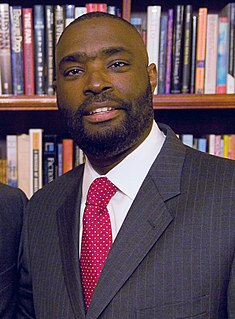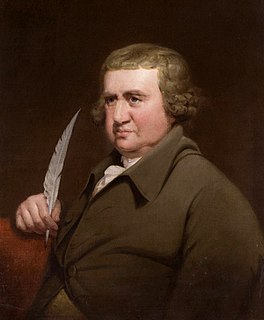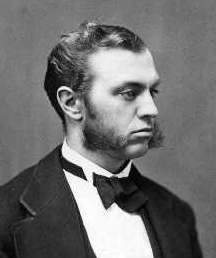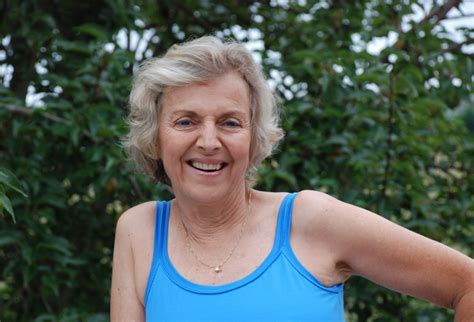A Quote by John Lubbock
The important thing is not so much that every child should be taught, as that every child should have the opportunity of teaching itself. What does it matter if the pupil know a little more or a little less? A boy who leaves school knowing much, but hating his lessons, will soon have forgotten all he ever learned; while another who had acquired a thirst for knowledge, even if he had learned little, would soon teach himself more than the first ever knew.
Quote Topics
Acquired
Another
Boy
Child
Does
Does It Matter
Even
Ever
Every
First
Forgotten
Had
Hating
Himself
His
Important
Important Thing
Itself
Knew
Know
Knowing
Knowledge
Learned
Leaves
Less
Lessons
Little
Matter
More
Much
Opportunity
Pupil
School
Should
Should Have
Soon
Taught
Teach
Teaching
Than
Thing
Thirst
Thirst For Knowledge
While
Will
Would
Related Quotes
It is no matter what you teach them first, any more than what leg you shall put into your breeches first. You may stand disputing which is best to put in first, but in the mean time your breech is bare. Sir, while you are considering which of two things you should teach your child first, another boy has learned them both.
A little more kindness, A little less speed, A little more giving, A little less greed, A little more smile, A little less frown, A little less kicking, A man while he's down, A little more "We", A little less "I", A little more laugh, A little less cry, A little more flowers, On the pathway of life, And fewer on graves, At the end of the strife.
Who will cry for the little boy, lost and all alone?
Who will cry for the little boy, abandoned without his own?
Who will cry for the little boy? He cried himself to sleep.
Who will cry for the little boy? He never had for keeps.
Who will cry for the little boy? He walked the burning sand.
Who will cry for the little boy? The boy inside the man.
Who will cry for the little boy? Who knows well hurt and pain.
Who will cry for the little boy? He died and died again.
Who will cry for the little boy? A good boy he tried to be.
Who will cry for the little boy, who cries inside of me?
Another thing very injurious to the child is the tying and cutting of the navel string too soon, which should always be left till the child has not only repeatedly breathed but till all pulsation in the cord ceases. As otherwise the child is much weaker than it ought to be, a part of the blood being left in the placenta which ought to have been in the child and at the same time the placenta does not so naturally collapse, and withdraw itself from the sides of the uterus, and is not therefore removed with so much safety and certainty.
People who know little are usually great talkers, while men who know much say little. It is plain that an ignorant person thinks everything he does know important, and he tells it to everybody. But a well-educated man is not so ready to display his learning; he would have too much to say, and he sees that there is much more to be said, so he holds his peace.
I was always in and out of school. What I learned in high school is that female friendships are so much more important than worrying about having a boyfriend or looking good or things like that. I had such a good girlfriend growing up that we didn't need anything. We had such a creative world of our own imagination together. For me, if I have a child, I would say, "I hope you find a best friend that makes it so you don't really need much but each other." Learning about that type of friendship and trust is one of the best things I ever got out of school.
Liebig taught the world two great lessons. The first was that in order to teach chemistry it was necessary that students should be taken into a laboratory. The second lesson was that he who is to apply scientific thought and method to industrial problems must have a thorough knowledge of the sciences. The world learned the first lesson more readily than it learned the second.
I started teaching yoga in 1974 in Colorado, I was living in Winter Park, and I started teaching skiers. At that point I was teaching more of the Sivananda system and just pushing it up a little bit to make it a little more rajasic a little more active, a little more physical. People would come, and feel great, and by the time I left Colorado in 1980 I'd taught pretty much everyone in town - the ski patrol, ski instructors, the bar owners.
We don't have problems. We have some protesters. Every once in a while, somebody will stand up. Today, we had a little more than normal in St. Louis in the morning. We had a number of people standing up. And it was fine. Nobody got hurt. But you know, they had to get taken out. And they're disruptive, and we do the best we can to do a little creative - have a little bit of fun with them.
Not every child learns for the same purpose, not every child thrives in the same settings and schools. Limiting a child to just one opportunity does nothing more than limit that child's future. The way forward must involve more public charter schools, which offer parents a tuition-free alternative to their neighborhood school.
I realize that some people will not believe that a child of little more than ten years is capable of having such feelings. My story is not intended for them. I am telling it to those who have a better knowledge of man. The adult who has learned to translate a part of his feelings into thoughts notices the absence of these thoughts in a child, and therefore comes to believe that the child lacks these experiences, too. Yet rarely in my life have I felt and suffered as deeply as at that time.











































